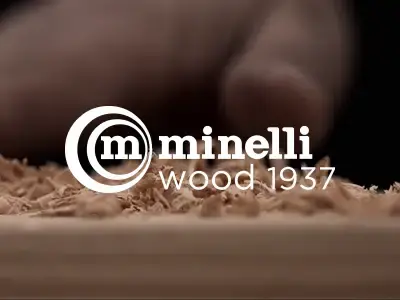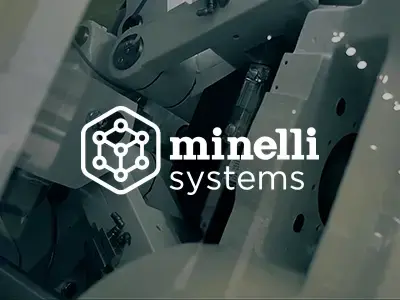 As the global focus on sustainability grows, industries are rethinking traditional manufacturing practices to align with environmental goals. Wood product manufacturing, a sector that naturally lends itself to eco-consciousness, is undergoing a revolution driven by innovative technologies. These advancements are not only reducing the ecological impact of manufacturing but also enhancing efficiency and product quality.
As the global focus on sustainability grows, industries are rethinking traditional manufacturing practices to align with environmental goals. Wood product manufacturing, a sector that naturally lends itself to eco-consciousness, is undergoing a revolution driven by innovative technologies. These advancements are not only reducing the ecological impact of manufacturing but also enhancing efficiency and product quality.
In this article, we explore the groundbreaking eco-innovations shaping the future of wood product manufacturing.
The need for sustainable wood product manufacturing
Wood is a renewable resource with significant potential for sustainable applications. However, conventional wood manufacturing processes often involve high levels of waste, energy consumption, and the use of environmentally harmful chemicals. The increasing awareness of environmental issues, stricter regulations, and demand for eco-friendly products have catalyzed the adoption of green manufacturing technologies in the wood industry.
This transition to sustainable practices is more than just a response to external pressures—it is an opportunity to harness the benefits of innovation. By integrating eco-innovations into production, manufacturers can achieve greater resource efficiency, reduce waste, and contribute positively to global sustainability efforts.
Sustainable material sourcing: certified wood
Sourcing sustainable materials is a fundamental step in creating environmentally responsible wood products. Certified wood, endorsed by organizations like the Forest Stewardship Council (FSC) and the Programme for the Endorsement of Forest Certification (PEFC), ensures that raw materials are derived from forests managed with a focus on ecological balance, biodiversity preservation, and ethical practices. These certifications provide manufacturers with a reliable way to source wood that meets stringent environmental and social standards, creating a traceable supply chain that consumers and industries can trust.

Innovations in waste reduction: the process of upcycling
Upcycling has emerged as a transformative solution in waste reduction, offering a sustainable approach to repurposing wood that might otherwise be discarded. Unlike traditional recycling, which often degrades the quality of materials, upcycling retains or enhances the inherent value of wood, creating products of equal or greater utility and appeal. This innovative process breathes new life into construction waste, old furniture, and industrial offcuts, reducing the strain on natural resources and decreasing landfill contributions.

The upcycling process begins with the careful selection and preparation of discarded wood. Materials are sorted, cleaned, and treated to remove nails, adhesives, or other contaminants. Advanced techniques such as precision cutting, sanding, and staining are then used to transform the salvaged wood into usable components or entirely new products. For example, scrap wood can be crafted into furniture, decor, or even packaging solutions.
The environmental benefits of upcycling are significant. It reduces the demand for virgin timber, minimizes energy consumption compared to traditional manufacturing processes, and lowers greenhouse gas emissions. Beyond its ecological advantages, upcycled wood products often carry unique character and charm, appealing to consumers who value sustainability and craftsmanship.
Automation and digital technologies for smarter wood product manufacturing
Automation and digital technologies are revolutionizing wood product manufacturing, enabling smarter, more efficient, and sustainable production processes. By leveraging advancements such as robotics, the Internet of Things (IoT), and artificial intelligence (AI), manufacturers can optimize operations, reduce waste, and improve product quality, all while lowering environmental impact.
Automation in production
Modern manufacturing facilities employ automated machinery to handle tasks with precision and consistency. For example, Computer Numerical Control (CNC) machines and robotic arms are used to cut, shape, and assemble wood components with unparalleled accuracy. This reduces material waste by maximizing yield from raw wood and ensures uniformity in product quality. Automated sorting and grading systems also enhance efficiency by classifying wood based on its characteristics, such as grain, knots, or imperfections, to determine the best use for each piece.
.jpg?width=500&height=334&name=108_DSC9474%20(1).jpg)
Digital technologies for monitoring and control
Digital tools like IoT sensors and cloud-based platforms provide real-time monitoring of production lines. These systems collect and analyze data to identify inefficiencies, detect defects early, and maintain optimal performance. Predictive maintenance powered by AI further minimizes downtime by alerting operators to potential equipment issues before they occur, ensuring seamless and uninterrupted production.
Smart manufacturing systems
Industry 4.0 technologies enable connected and intelligent factories. With IoT-enabled devices, manufacturers can integrate supply chain management, resource allocation, and quality control into a unified system. These smart systems optimize energy use, track raw materials, and adjust operations dynamically based on data insights, reducing energy consumption and material waste.
Advanced design and prototyping
Digital tools like CAD software and virtual modelling allow manufacturers to experiment with designs without physically producing prototypes, saving resources and time. Emerging technologies such as 3D printing further enhance flexibility by creating custom wood products with minimal waste, leveraging engineered wood composites or even upcycled materials.
Minelli combines cutting-edge technology with decades of expertise in custom wood manufacturing. Utilizing tailor-made CNC machines and advanced software, we deliver exceptional precision in large-scale production. With facilities in Europe and the U.S., we ensure seamless and efficient delivery, tailored to your needs.
Our skilled team is ready to assist with your inquiries or collaborate on new projects—contact us today!







